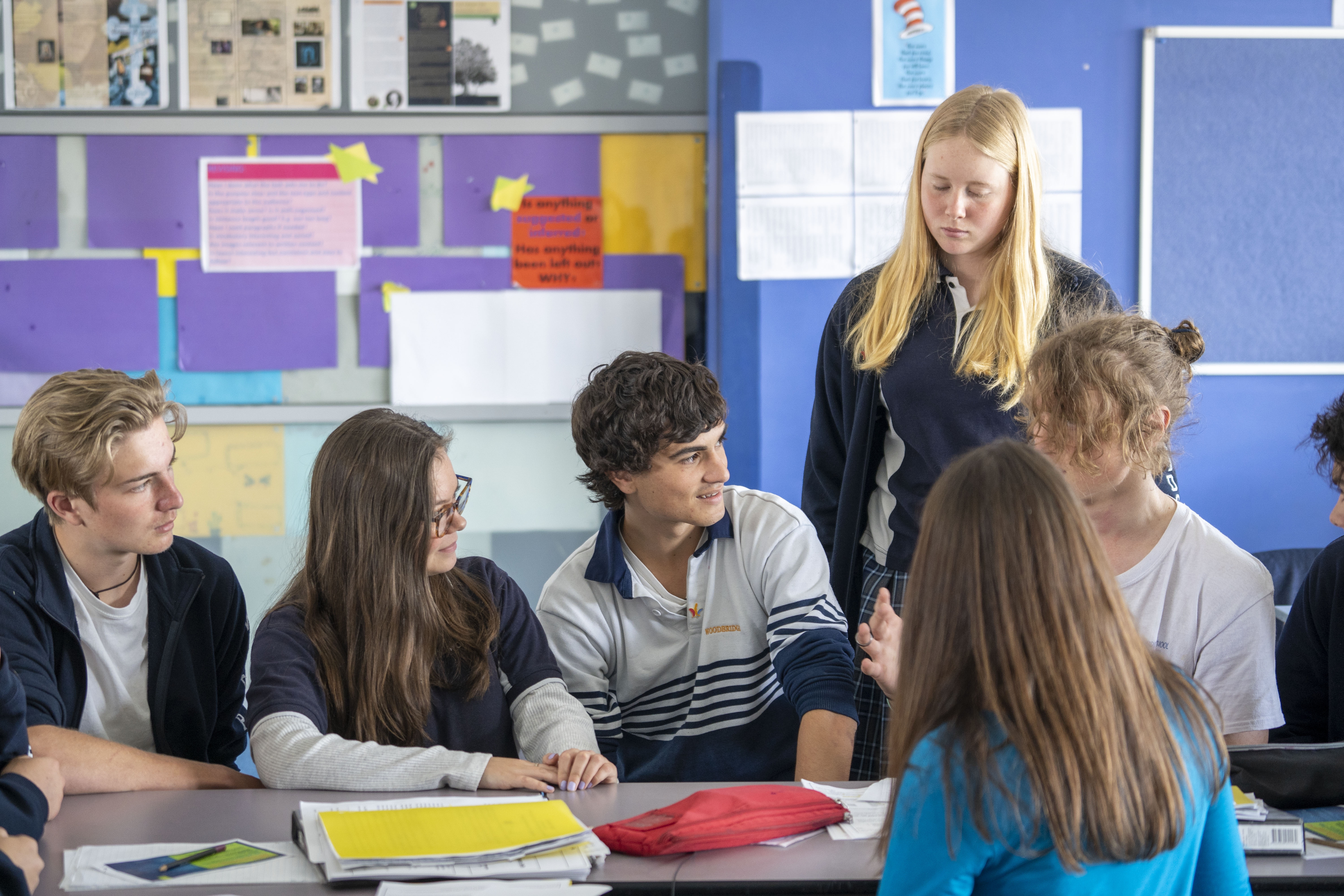On this page
Download this Fact Sheet:
Fact Sheet: The transition from secondary school (3.8 MB, PDF)
Impact of transitions
The transition from secondary school is a time of significant change.
Schools play a key role in helping secondary school students prepare for a life beyond school.
Students may follow a range of post-school pathways, with many new situations, opportunities and challenges. These may include:
- adapting to different environments and expectations
- forming new friendships amid different social environments
- greater financial expectations associated with adulthood
- responding to a variety of civic and community opportunities and obligations
- developmental changes – this is a time of rapid development, with many personal, emotional, psychological and biological change
- job hunting and entry into the employment market.
For more on transitions, see Transitions in learning communities.
Understanding behaviour
Everyone responds differently to change, and some people may be excited about the new opportunities, however for some young people leaving secondary school to experiences some strong reactions. Concerns can include:
- managing increased autonomy
- adapting to the different context of higher education or work (e.g. new settings and expectations)
- juggling work, family, friends and study
- dealing with setbacks
- understanding pathways beyond school
- navigating new environments and obligations such as deadlines, finances and work
- establishing new living arrangements.
How can secondary schools support smooth transitions?
Transition to work or education begins earlier than the final years of schooling. Schools can help students to prepare, throughout their education, in the following ways:
- Continue to develop students’ social and emotional skills.
- Inspire and mentor young people.
- Consider students unique cultural contexts and support needs
- Teach employability and life skills.
- Manage expectations by helping young people develop realistic goals and the steps required to achieve them, including having back-up plans.
- Connect students with mental health services, as appropriate, including post-school, if possible.
- Provide access to careers counselling.
- Encourage looking after yourself – eating well, sleeping well, staying active and connecting with family and friends
- Teach about the importance of building a support network of people you trust and can talk to
- Encourage help-seeking and getting support.
Useful strategies
Some specific strategies include the following:
- Provide adolescents with opportunities such as work placements and work experience programs. This allows students to gain experience in work settings, with different employers and different ways of learning.
- Give students education and knowledge about the workplace, such as work rights, superannuation and taxes.
- Educate students with budgeting and planning and which agencies can help, i.e., Centrelink
- Help build resilience and communication skills.
- Identify young people who might find the transition challenging. Educators understand the students’ circumstances, and are usually well placed to identify students who may need additional support.
Provide opportunities
Schools can facilitate students’ transitioning to tertiary education, vocational training or work by the following opportunities:
- Recognise their interests, strengths and aspirations.
- Build the skills, knowledge and behaviours to make informed yet flexible choices.
- Explore how jobs and careers are ever evolving.
- Ensure that students have personal and emotional support.
- Identify students who may find the transition out of school challenging – and initiate early interventions in accordance with you schools’ policies.
Although young people have typically been highlighted as a group that is at risk within the labour market, some groups have more challenges with the post-secondary school transition, including those living with disabilities and complex health, identity and other social issues.
Recognising these diverse needs and providing tailored support can help young people navigate this transition more confidently and thrive in their chosen pathways
Be You Professional Learning
Learn more about noticing and supporting children and young people who might experiencing mental health challenges during this transitional time in the Early Support domain.
-
External links
The Smith Family – Young people’s successful transition to work: What are the pre-conditions?
headspace – Supporting a young person with major transitions
headspace – Work and study support -
Bibliography
Centre for Multicultural Youth (2009). Pathways and transitions: Post-compulsory education, work and refugee young people. Melbourne: Victorian Settlement Planning Committee.
Circelli, M. & Oliver, D. (2012). Youth transitions: What the research tells us. Adelaide: NCVER.
Ferguson, J. (2008). Poverty and disadvantage among young Australians: How are young people going? Sydney: Youth Action and Policy Association.
Hillman, K. (2005). The first year experience: The transition from secondary school to university and TAFE in Australia. Retrieved from https://research.acer.edu.au/lsay_research/44.
Macourt, D. (2014). Youth and the law: the impact of legal problems on young people Updating Justice, February. Sydney: Law and Justice Foundation of NSW.
Yu, P. (2010). Disability and disadvantage: A study of a cohort of Australian youth, Australian Journal of Labour Economics, 13(3), 265-286.
